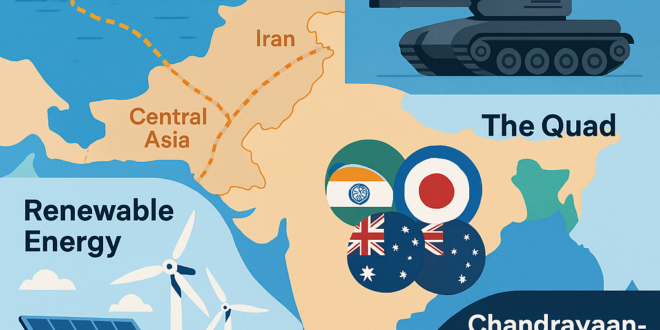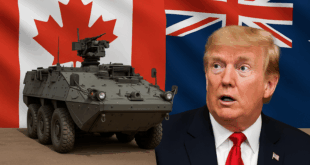India’s geopolitical position has expanded dramatically in recent years, making it a key participant not only in Asia but also on a worldwide scale.
From developing regional relations to leading global initiatives, India is defining the future of international politics.
In 2024, India and Iran reached a long-term deal to develop the Chabahar Port. This port serves as a crucial gateway for India to access Central Asia and Afghanistan without having to cross through Pakistan.
The agreement not only improves India’s trade connectivity but also increases its regional influence. It is growing as a significant exporter of defense equipment.
Countries such as the Philippines, Indonesia, and Armenia are purchasing Indian-made weapons and technologies.
This represents a substantial transformation from one of the world’s largest defense importers to a dependable defense partner for other countries. It reflects India’s increasing self-reliance and technical progress.
India is also making significant gains in renewable energy. With lofty solar and wind power ambitions, the country is poised to become a global leader in sustainable energy.
Other countries are also adopting solar energy thanks to initiatives such as India’s International Solar Alliance (ISA).
This not only addresses climate change but also establishes India as a responsible world leader.
The Quad, which comprises India, the United States, Japan, and Australia, has become a significant format for maintaining an open and free Indo-Pacific region.
India has played a central role in Quad operations in recent years, with themes ranging from maritime security to climate change and cooperation in technology.
This alliance is crucial in countering China’s growing presence in the region. India hosted the G20 summit in 2023, which unites world leaders to address key global issues.
India focused on sustainable development, digitalization, and inclusive growth under the slogan “One Earth, One Family, One Future.” The summit showcased India’s capability to lead global conversations and bridge the divide between developed and developing nations.
It has handled its relations with leading world powers with caution. While maintaining its strong ties with the United States and Europe, India has also preserved its long-standing friendship with Russia.
In addition, it has successfully managed its intricate relationship with China, even as there have been persistent border tensions.
This balancing act has provided India with the capacity to successfully pursue its national interests.In the time of the COVID-19 pandemic, India showed its leadership in humanitarian assistance.
India’s Vaccine Maitri initiative inoculated more than 90 nations, earning global appreciation. The initiative highlighted India’s dedication to global health and solidarity in crisis.
The successful landing of Chandrayaan-3 on the moon’s south pole in 2023 positions India as the fourth nation to achieve this feat.
This achievement not only boosted national prestige but also proved India’s technological capability globally.
India’s geopolitical development means more than it does in military or economic prowess; it means its ability to balance tradition with modernity, democracy with development, and regional with international agendas.
This unique approach makes India a bridge between the East and West, and the developed and developing worlds.
In summary, India is becoming a key player in Asia and the world at large, leveraging its strategic position, economic rise, and diplomatic skills to shape global issues and address regional issues. Its contribution is bound to increase in the coming years.
Ambareen.Sohail
Karachi
 Top Trends Blogs Trending Blogs – Latest News
Top Trends Blogs Trending Blogs – Latest News

